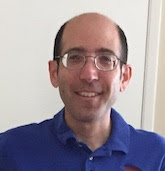I could not resist including this joke, widely told among mathematicians. Besides, life is incomplete without a sufficient dose of humor...
An engineer is asked the following question:
"You are in a modern kitchen, with an empty pot, and need to produce 2 quarts of boiling water. How would you do this?"
Replied the engineer, "Fill the pot with at least 2 quarts of water from the tap, put the pot on the stove, turn on the stove, and wait for the water to heat up to the boiling point."
A mathematician is asked the same question, to which he replies, precisely in the words of the engineer, "Fill the pot with at least 2 quarts of water from the tap, put the pot on the stove, turn on the stove, and wait for the water to heat up to the boiling point."
The questioner now returns to the engineer, and asks the follow-up question:
"Now imagine you are in the same kitchen, but the pot is already filled with at least 2 quarts of water. How would you produce 2 quarts of boiling water."
Replied the engineer, "The task is simpler! Put the pot of water on the stove, turn on the stove, and wait for the water to heat up to the boiling point."
The mathematician is asked the same follow-up question, to which he replies:
"Take the pot of water, pour it into the sink- down the drain- and put the empty pot down on the counter. Now it reduces to the previous case!"
Saturday, March 13, 2010
Ph.D. Program in Mathematics
For mathematicians who are admitted to a Ph.D. program, some (like myself) are treated to a strong dose of humility. The universities' math departments quickly proceed to screen their Ph.D. students in such a way that- within a few years- about 1/2 of them ultimately drop out of the program. The method of screening such students is the qualifying exams, which the graduate students dreadingly refer to as "the quals." Students must pass courses, but professors usually pass most of the students in their courses; "the quals" are the main obstacle students must overcome. Most of the problems on the quals are of the form "Prove that..." or "Show that ...." Preparation for the quals requires incredible memory capacity- memorizing all of the proofs that might potentially be covered, and incredible devotion to spending sufficient hours studying them. Ph.D. students are usually offered 4 years of "funding", which consists of a small salary (about $13,000 back in 1997) and free tuition as payment for TAing undergraduate math courses. TAing involves leading about 4 discussion sections per week, holding 2-4 office hours per week, and grading tests and quizzes. I remember TAing as the most enjoyable part of the program. However, "funding" is contingent on following the timeline for passing "quals"; once a student falls behind (which happens to most), they are subject to losing funding, being bumped down to the master's program, and ultimately removed from the program. The Ph.D. program is described in the universities' catalogs as a 4-year program, of which the first 2 years are spent passing qualifying exams, and the last 2 years focus on completing the dissertation. Very few (if any) of the Ph.D. students- even the successful ones- ultimately follow this timeline. Most of those who complete the program require 3 to 4 years to pass all of the quals. Only then are they allowed to begin work on the dissertation, which takes another 2 to 3 years. Those who ultimately complete the program typically do so in 5 to 7 years; thus, they are lucky to be done with school by the age of 28 or 29.
Whereas college allows for a healthy balance between studying and participating in the social and cultural life on campus, successful completion of the Ph.D. program requires intense immersion in mathematics and self-isolation that is excessive to some of us (like myself). Here is where I must diverge from those who completed the program and will ultimately become leading researchers in mathematics. This blog is for mathematicians who- like myself- left or chose not to enter the "ivory tower" so to speak, and realize they must function in the "real world."
Whereas college allows for a healthy balance between studying and participating in the social and cultural life on campus, successful completion of the Ph.D. program requires intense immersion in mathematics and self-isolation that is excessive to some of us (like myself). Here is where I must diverge from those who completed the program and will ultimately become leading researchers in mathematics. This blog is for mathematicians who- like myself- left or chose not to enter the "ivory tower" so to speak, and realize they must function in the "real world."
Subscribe to:
Comments (Atom)
